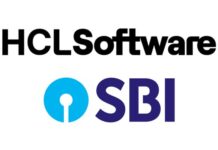Cellular Operators Association of India (COAI), the apex industry body representing the digital communications ecosystem in the country, has submitted recommendations for the Union Budget 2024-25 to the Ministry of Finance, Government of India, with a focus on enhancing the financial well-being of the industry.
The Key asks made by the telecom industry for the Union Budget 2024-2025 are:
Regulatory Levies: COAI has held the view that ideally USOF levy should be abolished. However, if that is not possible, then the USO contribution of 5% of AGR may be suspended till the existing USO corpus (INR 77,000 Crs) is exhausted. Further, License Fee should be brought down from 3% to 1% at the earliest to cover only administrative costs by the DoT/Government.
The present definition of Gross Revenue (GR) includes revenue from all telecom activities. The term telecom activity is not defined but may include revenue from activities believed to be incidental to telecom activity. Therefore, the definition of GR should make it abundantly clear that the revenue from activities for which no license is required, should NOT be a part of GR.
Direct Taxes: COAI has requested to introduce a special regime for the telecom operators under Section 72 of the Income Tax Act, 1961, wherein the business losses can be carried forward and set-off till Sixteen (16) assessment years, from the existing 8 years. Lapse of business losses post eight years would be detrimental to the already distressed Telecom Industry (due to various factors such as Hon’ble Supreme Court Ruling in AGR matter, reduction in tariff margins due to low product pricing, requirement to subscribe to additional spectrums involving huge capital outlay, etc.) as the income during the recovery phase will be subject to tax outflows and other committed pay-outs related to AGR, spectrum, etc., causing undue hardship to the sector.
Service Taxes: COAI has requested that the levy of Service Tax on “assignment of right to use natural resources” granted by the Central Government/ State Government and Development Authorities be exempted.
The judgment of Supreme Court regarding methodology for calculation of AGR payable to Government has created an additional liability on the telecom service providers. Before the introduction of GST, Service Tax was paid on payment of AGR and Credit of the same was made also available. However, after introduction of GST, additional payment of AGR on account of SC judgment with service tax, will make service tax amount as a cost for telecom companies as no credit will be admissible to them. GOI should exempt payment of Service Tax on the additional liability of AGR pursuant to Supreme Court judgment.
Relief has been requested by way of exemption from payment of Service Tax for the period of April 2016 to June 2017, and on various services that have been issued in November 2018. Alternatively, the Government may prescribe a time-bound simple process to claim a cash refund of the Service tax to be paid under the RCM (Reverse Charge Mechanism), which would help the industry to some extent.
Customs Duty: The Government of India, over a period of 5 to 6 years, has increased the customs duty on Telecom equipment to 20% which has put an additional financial burden on telecom companies and has impacted rollout of 5G services in India. COAI has requested exemptions on Customs duty on certain telecom equipment, which presently increases the cost of rolling out this critical infrastructure.
The industry body has requested that the customs duty should be reduced to zero and have to be gradually increased depending on creation of ecosystem for manufacturing of telecom gear in India. Till the time good quality equipment is available in India at affordable prices, Customs Duties for 4G/5G related network products, along with other related products, should be brought down to nil.
Clarification(s) regarding activities relating to cable repair/installation operations carried out in Exclusive Economic Zone (EEZ): Telecom companies heavily depend on submarine cables for the high-speed transfer of data around the globe. The current customs duty exemption granted to vessels engaged in laying submarine cables in India is set to expire on March 31, 2024. It is imperative to extend this exemption to prevent a substantial increase in the costs associated with cable laying. Such an increase could adversely affect the future deployment of submarine cables, potentially compromising the quality of service provided to customers.
GST: Presently, GST is being paid by the telecomoperators under a Reverse Charge Mechanism (RCM) on payment made to Department of Telecommunication (DoT) towards License Fees, Spectrum Usage Charges and Payment of Spectrum acquired in auction. Payment of GST in cash on a reverse charge basis and subsequent Input Tax Credit (ITC) utilization has resulted in substantial accumulation of ITC within telecom companies, leading to a significant blockage of working capital and thereby, imposing a substantial financial burden on these companies. Telcos are urging for an exemption from GST under RCM on payments related to these charges, which would alleviate the financial strain by preventing further ITC accumulation and releasing blocked working capital.
COAI has requested the government for exemption of GST on License Fees, Spectrum Usage Charges and Spectrum Acquisition Fee, for some much-needed relief to the sector. Alternatively, allowing the payment of RCM on Government Services through the utilization of the Input Tax Credit balance available in the Electronic Credit Ledger has been proposed.
Lt. Gen. Dr. S.P. Kochhar, Director General, COAI shared “The recent forward-looking reforms signal a positive intent towards a robust and future-ready telecom sector, capable of fueling India’s digital ambitions. But to fully realize this potential, we must address the financial constraints impeding the sector’s expansion. Reducing levy burdens is not just an economic necessity, but a strategic investment in our digital future. By allocating adequate resources for 5G rollout, network expansion and fiberization in the upcoming budget, the government can unlock this critical sector’s full potential and propel us towards a digitally empowered nation. We strongly urge the government to prioritize telecom infrastructure development in the upcoming budget by addressing these regulatory burdens. Doing so will unlock the full potential of this critical sector, propelling India towards a robust and inclusive digital future.”
The industry is optimistic that the recommendations put forth by COAI will be taken into consideration by the GST Council, as they are critically needed by the industry for the purposes of ease of doing business and working towards restoring the financial health of this essential sector.















